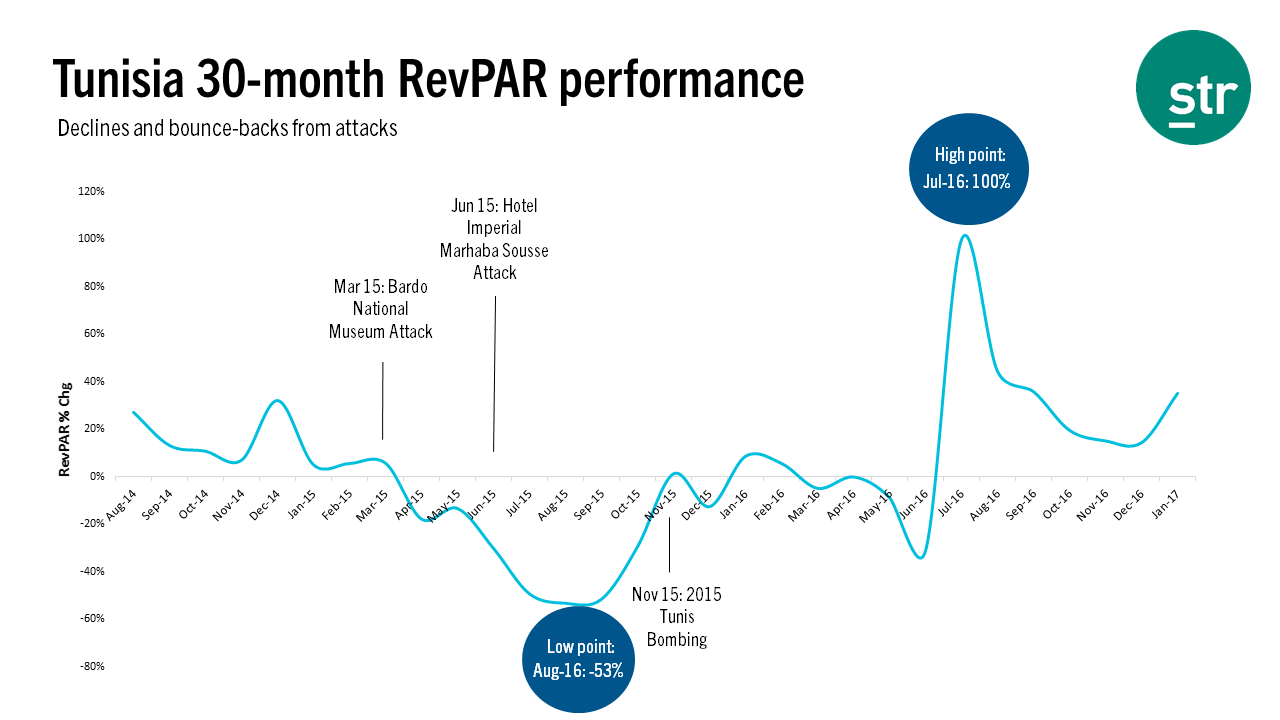Tunisia has started to show signs of a bounce-back after three separate terror attacks in 2015.
Global hotel operators are making a show of faith in the country.
Deutsche Hospitality has signed an agreement for a beach resort on Gulf of Hammamet, Tunisia, one month after opening its first two hotels in the country. It will operate The Steigenberger Hotel Palace Marhaba under a management agreement for the owner, Tunisia-based Marhaba Company. The hotel will have 371 rooms and suites as well as six restaurants and bars serving up a range of different cuisines, opening in November this year.
“Our declared company goal is to seek international growth at attractive locations,” said Puneet Chhatwal, CEO of Deutsche Hospitality. “Our presence in Hammamet enables us to add yet another popular resort location to our portfolio and establishes our ‘Steigenberger’ brand even more powerfully within the holiday segment. After a few months on the Tunisian market, our representation has expanded to three hotels. This is a highly pleasing development which is a ringing endorsement of our strategy of expansion.”
Deutsche Hospitality is not alone. April saw the Four Seasons announce its debut in the country, with the Four Seasons Hotel Tunis, due in late 2017. In regard to opening in Tunisia for the first time, J. Allen Smith, president and CEO of Four Seasons Hotels and Resorts, said: “We are excited to extend our presence in North Africa, and particularly along this stretch of the Mediterranean coast.”
As at Deutsche Hospitality, the owners are local, in this case the Mabrouk Group.
On the Up and Up
Looking back two years from January 2017, STR reported “significant declines in RevPAR” following the March 2015 museum attack, which worsened after the Sousse attack that June, in which 38 tourists were killed at the beach resort, resulting in a 51.7-percent RevPAR drop for Q3 2015.
The market has shown signs of recovery, with positive RevPAR performance from July 2016 onwards, largely as a result of a bounce-back from the prior year, reaching a peak at 100-percent RevPAR growth for the July, which STR described as “especially impressive” as this was 1.6-percent higher than in July 2014.

Tunisia is one of the six countries from which passengers are banned from carrying laptops on direct flights to the U.S. and U.K. Advice from foreign governments, including the U.K., is to stay away, with the FCO advising against “all but essential travel” to the region, while the U.S. Department of State warns against travel to the areas close to the Libyan border.
The country has been working to improve security and make itself into a more attractive and easily-accessed destination and is due to launch an electronic visa in late 2017 or early 2018. Tunisia has also been broadening its offering, looking to health tourism, in addition to plans to seek Unesco World Heritage status for the island of Djerba, site of Africa’s oldest synagogue and an annual Jewish pilgrimage.
Responding with enthusiasm is German tour operator FTI, which increased its flight capacities to the country by 9,000 seats for the summer of 2017. “We have always believed in Tunisia and kept our offer for the country in challenging times,” said Elia Gad, FTI's head of destination Orient and Middle East. “The steeply rising booking figures for the current season are justified in our decision.”
With a return of the mass market, the government is hoping for a return of foreign investment. It's seen success, so far. Qatar’s Mejda Group has signed a deal to develop a USD $220-million tourism complex, including a luxury hotel and a shopping center, just outside Tunis. Mejda Group has already built a luxury hotel in Tabarka, close to the Algerian border in north-west Tunisia.
As the message spreads, it is hoped, so will those who see a future in the country.
